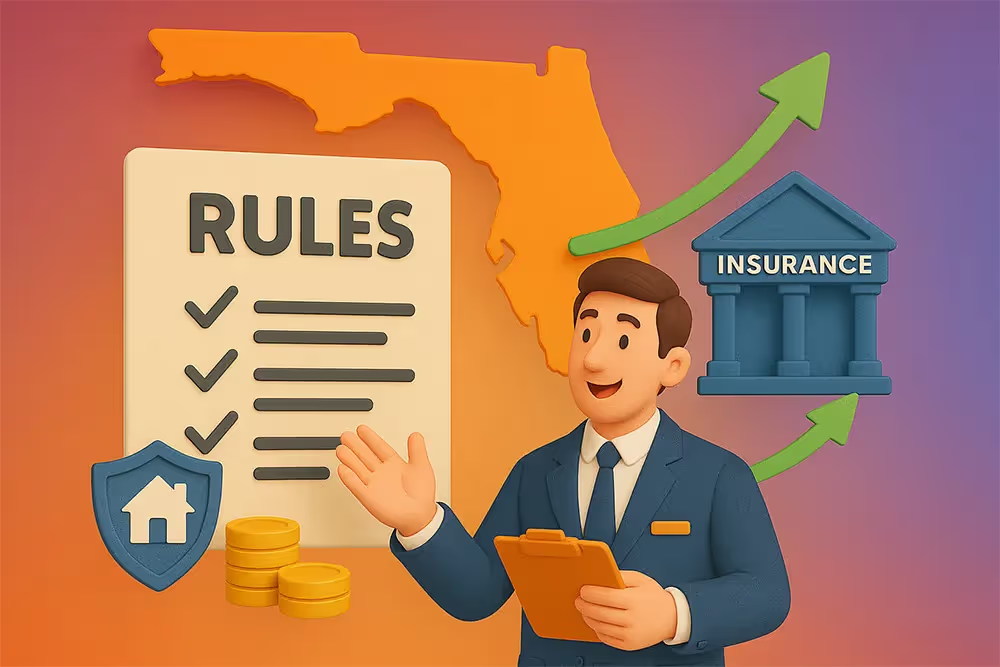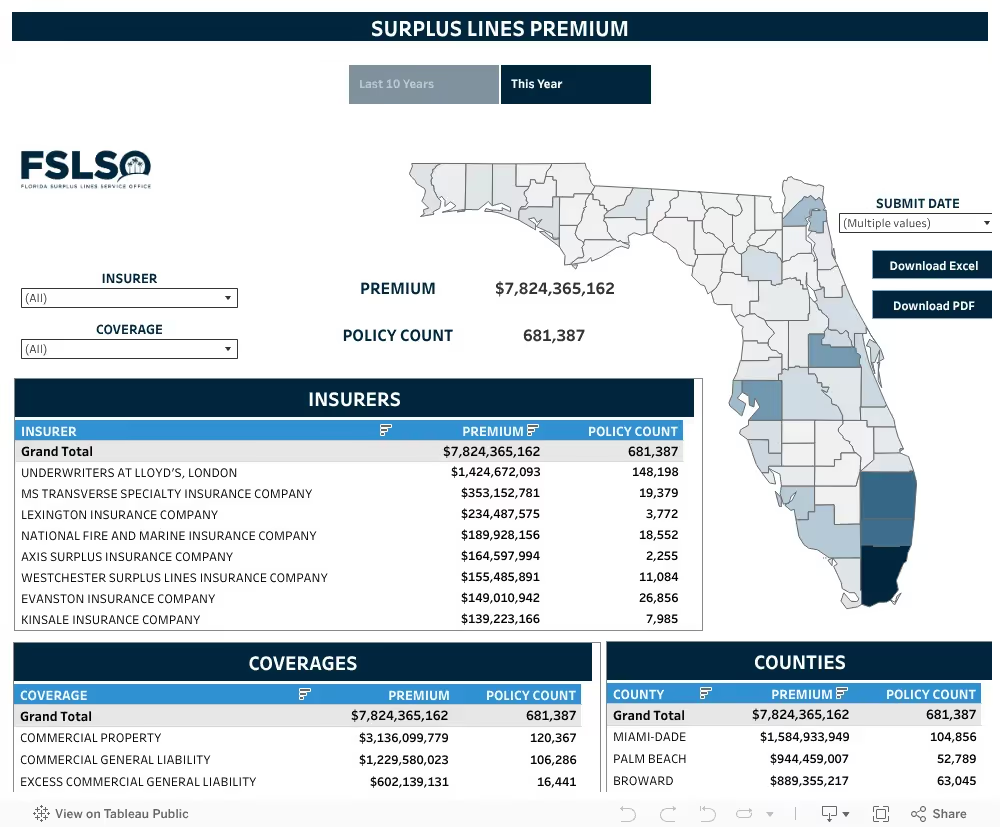Florida Eases Surplus Lines Rules for Insurance Agents
Florida's 2025 surplus lines bill eliminates the "diligent effort" rule, allowing insurance agents to place coverage with surplus lines carriers without first trying admitted insurers. Supporters say it streamlines access for hard-to-insure properties, while critics warn homeowners might not grasp the risks of less-regulated, non-guaranteed policies. A new disclosure form aims to clarify those risks.

Florida Lawmakers Make It Easier for Agents to Use Surplus Lines Insurance
Starting July 1, Florida insurance agents may no longer have to jump through the same hoops before turning to surplus lines coverage—if Gov. Ron DeSantis signs off on a new bill.
House Bill 1549, passed by both the House and Senate in late April and early May, removes the long-standing “diligent effort” requirement. Under current law, agents must try at least three admitted carriers (or just one for high-value homes) before considering surplus lines. The new measure eliminates that step entirely, aiming to cut delays for hard-to-place risks.
The Florida Association of Insurance Agents backs the change, saying the old rule often wasted time without actually benefiting homeowners. Still, not everyone agrees.

Some critics, including trial attorneys, warn that homeowners may not fully understand what surplus lines mean—especially since these policies aren’t protected by the Florida Insurance Guaranty Association if the insurer fails. They’re also typically less regulated and often more expensive.
To address those concerns, HB 1549 adds a new disclaimer to the surplus lines disclosure form. It now must explain that surplus lines rates and forms are not approved by any Florida regulator. Once the homeowner signs this, they’re legally presumed to understand that other coverage options might exist.
The bill also strips out older language about what qualifies a risk for surplus lines coverage, streamlining the process further.
Push to Ease Citizens Appointment Rules Fizzles Out
Another proposal, Senate Bill 1184, aimed to loosen restrictions on agents working with Citizens Property Insurance. It didn’t survive the legislative session.
That bill would’ve scrapped the current rule requiring agents to hold appointments with three private carriers before working with Citizens—the state’s largest insurer and its backup when private options fall short. SB 1184 would have replaced the rule with a signed attestation from agents confirming they could access private markets, at least for commercial lines. Residential coverage wasn’t included.
This requirement was put in place just last year through House Bill 1503, part of a broader effort to reduce Citizens’ ballooning policy count. Before that, agents needed just one appointment.
Despite some early movement, both SB 1184 and its companion, House Bill 643, were pulled from consideration before session’s end.
So for now, the three-carrier rule for Citizens agents remains. But when it comes to surplus lines? Agents may soon have a much faster route.
